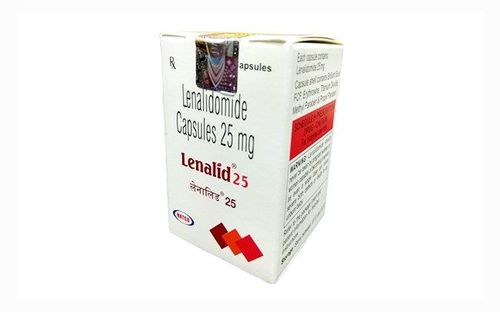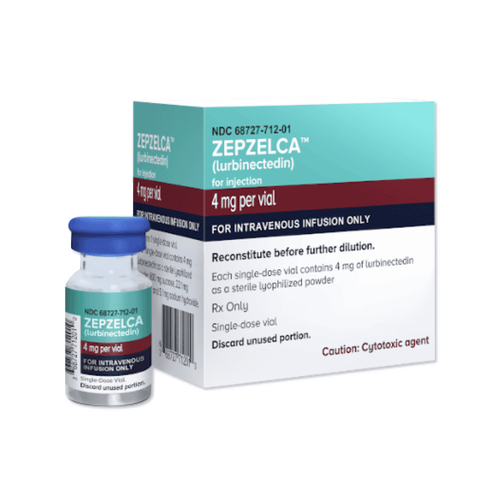This is an automatically translated article.
Glotraz is known to be an anti-cancer drug and affects the immune system. So what are the ingredients and uses of Glotraz, what should I pay attention to when using?
1. What is Glotraz?
Glotraz is a drug containing the main ingredient Letrozole 2.5mg, manufactured by Globela Pharma PVT., Ltd - India.
Name of herbal medicine: Glotraz drug. Drug class: Drugs that belong to the group of drugs that fight cancer and act on the immune system. Ingredients: Letrozole 2.5mg. Preparation: Film-coated tablets. Packing: Packed in boxes of 3 blisters x 10 tablets.
2. What does Glotraz do?
Letrozole is a non-steroidal substance, highly effective in selectively inhibiting the aromatase enzyme - the enzyme that catalyzes and promotes the conversion of androgens in the adrenal cortex to estrone and estradione. On the other hand, it also inhibits the formation of estrogen in peripheral tissues as well as the tumor itself.
Thanks to the above uses, Letrozole is indicated for the following cases:
Treatment of advanced breast cancer in post-menopausal women who have failed treatment with tamoxifen or other antiretroviral drugs. other oestrogens. Treatment of early invasive breast cancer in postmenopausal women previously treated with tamoxifen. Preoperative treatment for breast preservation in postmenopausal women with hormone receptor positive breast cancer.
3. Dosage and how to use Glotraz
3.1. Dosage The drug is only used for adults with specific dosages for each subject as follows:
Adults and the elderly:
The recommended dose of Letrozole is 2.5mg x 1 time / day. For the purpose of supporting the treatment process, Letrozole should be used continuously for 5 years in a row or until the tumor recurs, whichever comes first. After standard tamoxifen therapy, letrozol therapy should be continued for 3 consecutive years or until tumor recurrence, whichever comes first. So far there is no long-term usage data, so there is no optimal usage time. In metastatic patients, Letrozole should be continued until tumor progression becomes more apparent. During preoperative treatment, the possibility of disease progression should be regularly checked. No dosage adjustment of Letrozole is required in the elderly. Patients with hepatic impairment, renal impairment:
No dosage adjustment of Letrozole is required for patients with mild or moderate hepatic impairment. No dosage adjustment of Letrozole is required in patients with renal impairment (creatinine clearance ≥ 10 ml/min). In addition, in the process of using the patient need to inform the doctor, pharmacist about the unwanted effects that he encountered during the use of the drug.
3.2. Glotraz is prepared in the form of film-coated tablets, the patient takes the drug by swallowing the tablet whole with a full glass of water. Avoid chewing, crushing or splitting the tablet.
3.3. Treatment of Overdose There is no clinical experience with overdose with the drug. In animals, Letrozole has a relatively low toxicity, and in clinical practice, Letrozole has not shown life-threatening symptoms.
In addition, there is no specific antidote. In case of overdose, it is necessary to treat the symptoms and support the patient's condition in case of need.
4. Notes when using Glotraz
4.1. Contraindications Letrozole is contraindicated in the following cases:
Patients who are allergic or sensitive to Letrozole or any of the active ingredients in the drug. Women who are pregnant, lactating or premenopausal women. Patients with severe liver failure. Do not use Letrozole before surgery if the receptor status is negative or clearly unknown. 4.2. Side effects When taking the drug, unwanted side effects are usually mild and moderate, mostly due to estrogen deficiency.
Very common condition (ADR ≥ 10%): Facial flushing, joint pain.
Common conditions (1% ≤ ADR < 10%): Appetite, anorexia, cause elevation of serum cholesterol, dizziness, headache, hair loss, neurasthenia, nausea, vomiting, constipation, diarrhea, digestive disorders, increased sweating, rash, osteoporosis, myalgia, bone pain, fractures, peripheral edema, weight gain, fatigue.
Uncommon condition (0.1% ≤ ADR < 1%): Causes memory loss, insomnia, tactile disturbances, taste disturbances, myocardial infarction, dyspnea, cough, urinary tract infection, pain tumor, edema, fatigue, cerebrovascular accident, palpitations, tachycardia...
4.3. Drug Interactions In clinical trials, Letrozole did not have significant interactions with barbiturates, benzodiaepin, cimetidine, non-steroidal anti-inflammatory drugs, omeprazole, furosemide, paracetamol. There is no experience with the combined use of Letrozole with other antineoplastic agents. 4.4. Notes and precautions During the use of Letrozole, patients should pay attention to precautions in the following cases:
Do not use in pediatric patients, because the effectiveness and safety of the drug has not been evaluated on studies yet. clinical studies in this population. There are currently no data on the use of Letrozole in male breast cancer. There are no data on the use of Letrozole in patients with creatinine clearance less than 10 ml/min, therefore special caution should be taken when using Letrozole in these patients. Because Letrozole has the ability to cause a sharp decrease in estrogen levels, it will drastically reduce bone mineralization. Therefore, before treatment with Letrozole, women at risk of osteoporosis or osteoporosis should have their bone density checked. Appropriate contraception should be used when using Letrozole in women who have recently entered perimenopause or have recently reached menopause. During the use of Letrozole, the patient may appear tired and dizzy, sometimes drowsy, so special care should be taken when driving or operating machinery. Above is information about the composition, dosage, usage, uses of Glotraz and important notes. To ensure maximum effectiveness as well as safety when using the drug, patients need to consult their doctor before using and use exactly as prescribed by the doctor.













